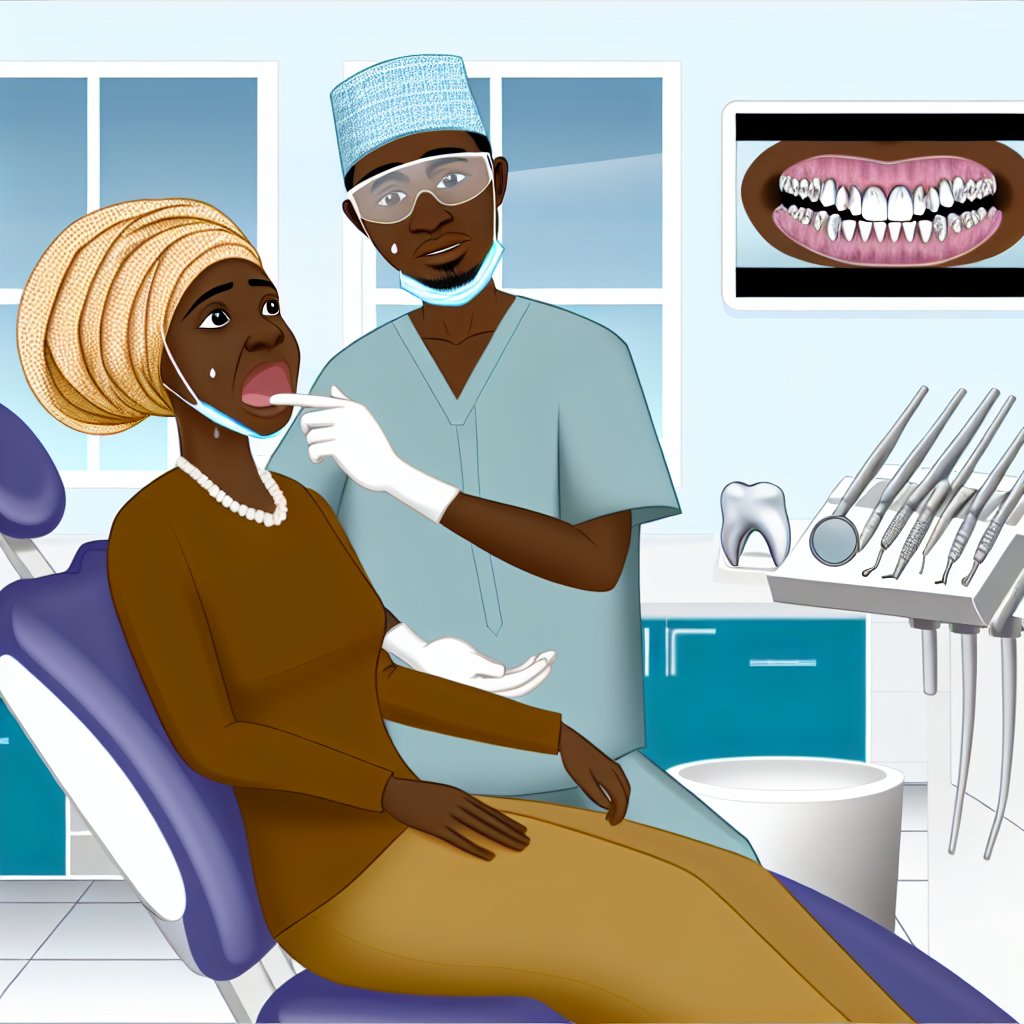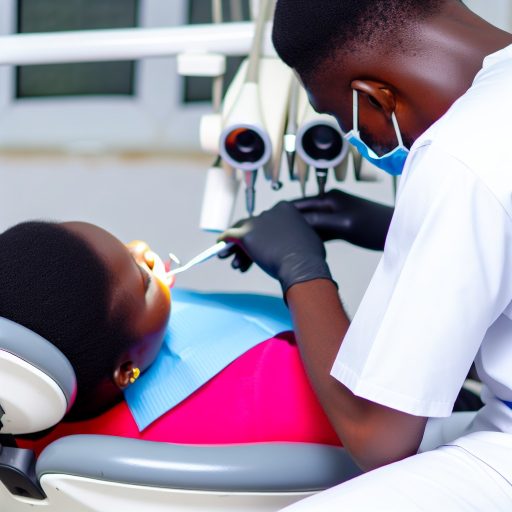Introduction:
Maintaining good oral health is crucial for overall well-being.
Missing teeth can significantly impact an individual’s quality of life.
Common causes of tooth loss include decay, trauma, and gum disease.
These factors can lead to tooth loss in many individuals.
There are several restorative options available for individuals with missing teeth.
These options can help improve both function and aesthetics.
Replacing Missing Teeth with Dental Implants
When it comes to replacing missing teeth, dental implants are a popular and effective option.
Here is why dental implants are a preferred choice for many patients.
What Are Dental Implants?
- Dental implants are artificial tooth roots made of titanium that are surgically placed in the jawbone.
- These implants provide a sturdy foundation for replacement teeth, such as crowns or dentures.
- Implants function as permanent replacements for missing teeth, offering stability and durability.
Here is a detailed look at how dental implants work.
Function of Dental Implants
- Dental implants act as artificial roots that support replacement teeth to function like natural teeth.
- Implants help maintain bone structure in the jaw and prevent further bone loss.
- They mimic the look, feel, and function of natural teeth, providing a comfortable and natural smile.
The process of getting dental implants involves several steps.
Process of Getting Dental Implants
- The first step is a comprehensive examination and consultation with a dental professional.
- During the surgical procedure, the implant is placed into the jawbone beneath the gum line.
- After the implant fuses with the bone, a connector called an abutment is attached to support the replacement tooth.
- The final step involves attaching a custom-made artificial tooth to the abutment.
Dental implants offer numerous benefits for patients.
Benefits of Dental Implants
- Dental implants improve chewing ability and speech, allowing for better oral function.
- Implants are durable and can last a lifetime with proper care and maintenance.
- They help restore confidence and self-esteem by providing a natural-looking smile.
- Implants do not require alterations to adjacent teeth, preserving overall oral health.
Consult with your dentist to see if you are a candidate for this restorative option.
Dentures:
Dentures are removable prosthetic devices used to replace missing teeth.
There are two main types of dentures: full dentures and partial dentures.
Custom-made fit:
Dentures are custom-made to fit the individual’s mouth for comfort and functionality.
The dentist takes impressions of the patient’s mouth to ensure a precise fit.
Mimicking natural teeth:
Dentures are designed to mimic the appearance of natural teeth for a natural-looking smile.
The color, shape, and size of the prosthetic teeth are carefully crafted to blend in seamlessly.
Maintenance and care:
Proper maintenance and care are essential for the longevity of dentures.
Regular cleanings and adjustments by a dentist are necessary to keep dentures in good condition.
Dentures should be removed at night and soaked in a denture solution to keep them clean.
Benefits of dentures:
Dentures restore the ability to chew and speak properly, improving overall quality of life.
They provide support for facial muscles, preventing sagging and maintaining facial structure.
Dentures are a cost-effective option for replacing missing teeth compared to other restorative treatments.
Drawbacks of dentures:
Dentures may require adjustments over time as the jawbone changes shape.
Some people may experience difficulty with speaking or eating while adjusting to dentures.
Dentures can feel bulky or unnatural in the mouth, especially in the initial stages of wearing them.
Uncover the Details: Understanding Mental Health Challenges in Nigeria
Dental Bridges:
Dental bridges are a fixed solution for replacing missing teeth by anchoring to adjacent natural teeth.
The procedure for getting dental bridges involves preparing the abutment teeth, taking impressions, and fitting a temporary bridge.
Proper oral hygiene is crucial to maintain the health of the abutment teeth and prevent gum disease.
Advantages of dental bridges include restoring chewing function, maintaining facial structure, and improving speech.
Dental bridges are customizable to match the color and shape of your natural teeth for a seamless blend.
The lifespan of dental bridges can vary, but with proper care, they can last anywhere from 5 to 15 years.
Regular dental check-ups are essential to ensure the longevity of your dental bridges and overall oral health.
- Dental bridges are a fixed solution for replacing missing teeth by anchoring to adjacent natural teeth.
- The procedure for getting dental bridges involves preparing the abutment teeth, taking impressions, and fitting a temporary bridge.
- Proper oral hygiene is crucial to maintain the health of the abutment teeth and prevent gum disease.
- Advantages of dental bridges include restoring chewing function, maintaining facial structure, and improving speech.
- Dental bridges are customizable to match the color and shape of your natural teeth for a seamless blend.
- The lifespan of dental bridges can vary, but with proper care, they can last anywhere from 5 to 15 years.
- Regular dental check-ups are essential to ensure the longevity of your dental bridges and overall oral health.
You Might Also Like: Patient Financing Options for Dental Restorations
Mini Dental Implants:
Mini dental implants are a less invasive alternative to traditional dental implants.
These implants are commonly used to stabilize dentures and provide additional support.
The benefits of mini dental implants include quicker recovery time and lower cost compared to traditional implants.
Mini dental implants offer a viable restorative option for individuals who may not be suitable candidates for traditional dental implants.
Transform Your Career with Expert Guidance
Get personalized mentorship consulting that’s tailored to your unique path. Our expert advice is actionable and exclusive.
Get StartedThese smaller implants are approximately half the size of regular dental implants and offer a less invasive solution for missing teeth.
Stabilizing Dentures
One of the primary uses of mini dental implants is to stabilize dentures.
This is particularly beneficial for individuals who struggle with loose or ill-fitting dentures.
Mini implants can be strategically placed to anchor the dentures in place, preventing them from shifting or moving while talking or eating.
Added Support
In addition to stabilizing dentures, mini dental implants provide added support to the jawbone.
This can help prevent bone loss and maintain the overall structure of the face.
By anchoring the dentures securely in place, mini implants also help distribute biting forces more evenly.
This reduces the risk of damage to the surrounding teeth and gums.
Benefits of Mini Dental Implants
There are several benefits to choosing mini dental implants over traditional implants.
One key advantage is the quicker recovery time associated with mini implants.
Since the procedure is less invasive, patients typically experience less discomfort and swelling post-surgery.
Furthermore, mini dental implants are often more cost-effective than traditional implants.
The smaller size of the implants allows for a simpler and quicker installation process.
This can result in lower overall costs for the patient.
This makes mini implants a more accessible option for individuals seeking a reliable and affordable tooth replacement solution.
Mini dental implants offer a convenient and effective restorative option for individuals with missing teeth.
Whether used to stabilize dentures or provide added support to the jawbone, mini implants provide numerous benefits.
Consult with your dentist to see if mini dental implants are the right solution for you.
Delve into the Subject: Career Paths in Radiological Science in Nigeria

The All-on-4 implant technique is a revolutionary approach in restorative dentistry.
This technique involves attaching a full arch of teeth to just four dental implants.
By strategically placing the implants, the All-on-4 method provides a stable foundation for the new teeth.
One of the key advantages of All-on-4 implants is the reduced number of implants needed.
Traditional implant methods may require up to eight implants for a full arch of teeth.
With All-on-4, only four implants are necessary, making it a more cost-effective option.
Another benefit of All-on-4 implants is the shorter treatment time compared to other methods.
Patients can receive their new set of teeth in just one or two appointments.
This is a significant advantage for individuals with busy schedules or those seeking immediate results.
When considering All-on-4 implants, it is essential to meet certain eligibility criteria.
Candidates should have good overall health and adequate bone density to support the implants.
A consultation with a qualified dentist or oral surgeon can determine if All-on-4 is suitable for you.
Long-term success rates for All-on-4 implants are very promising.
Studies have shown that the All-on-4 technique has a high success rate, with many patients enjoying their new teeth for years to come.
With proper care and maintenance, All-on-4 implants can last a lifetime, providing a durable and natural-looking smile.
Learn More: Role of Culture in Nigerian Mental Health Practices
Restorative Options for Missing Teeth
The restorative options for missing teeth include dental implants, bridges, and dentures.
It is essential to seek professional dental advice to determine the best treatment option based on individual needs.
Prioritizing oral health is crucial, as it can significantly impact one’s quality of life.
Consider restorative options for missing teeth to improve overall well-being.
Additional Resources
Single-tooth replacement: factors affecting different prosthetic …
A Survey of the Knowledge of Dental Implants as a Choice in …




